Are you looking for ways to invest in precious metals but don't have the cash upfront? Consider taking a loan from your 401k. This could be an ideal solution for those who want to diversify their portfolio without breaking the bank. Not only can you borrow at lower interest rates than most other options, but it's also tax-free and won't affect your credit score! Don't miss out on this good time - start investing in gold and silver today with a 401k loan. Upon getting the loan, you must find a good precious metals investment company to invest with if you want to get the right returns on investment (ROI) from your money. This is why I recommend Augusta Precious Metals as the best of all the top gold and other rare metal companies out there.

We earn a commission if you make a purchase, at no additional cost to you.
Are you looking to borrow from your 401k? This may seem like an attractive option, but it is key to understand the implications of such a decision. Before taking out money from your retirement account, consider all angles and research carefully if this is the right move for you. In this blog post, we will see what a 401k is, whether or not you can borrow from one, and how to do so responsibly with minimal tax consequences. We'll also provide tips on making smart decisions about borrowing money from your retirement account - so read on.
What is a 401k?
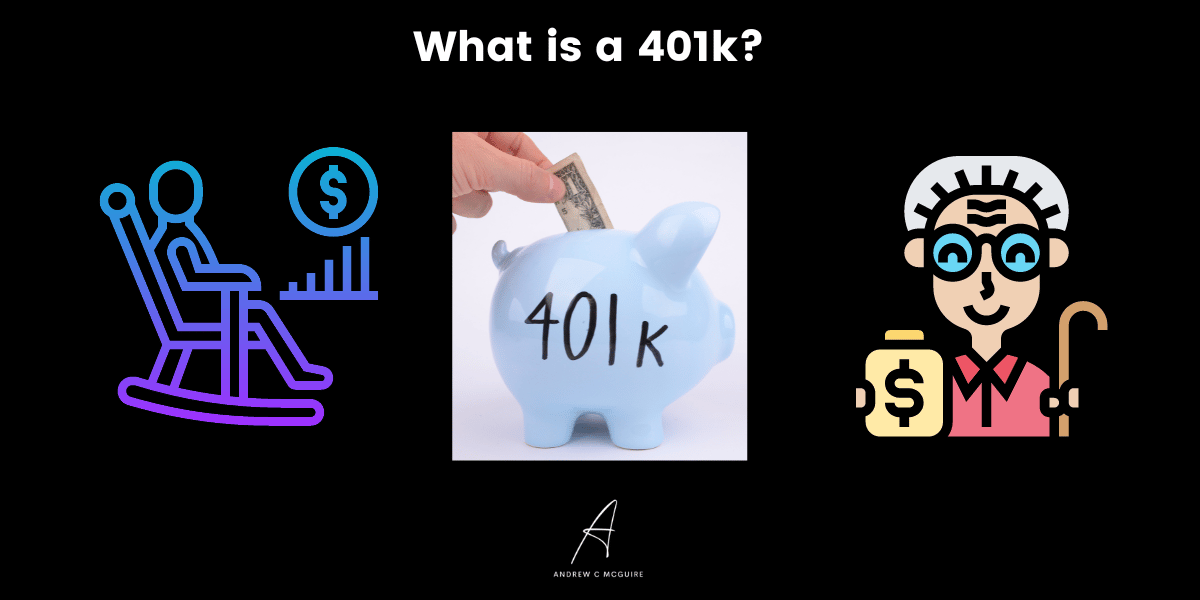
It is a retirement savings plan sponsored by an employer. The 401 k allows employees to save and invest a portion of their paychecks before taxes are taken out. This means that the money invested in the 401k grows tax-free until it is withdrawn at retirement age.
Definition of a 401k
It is an employer-sponsored retirement savings plan which allows employees to set aside after-tax dollars from each paycheck into an investment account for future use. Employees can choose how much they want to contribute, up to certain limits established by the IRS, and employers may match contributions up to a certain percentage or dollar amount as well. The money in the account grows tax-deferred until withdrawal at retirement age when taxes must be paid on any withdrawals made from the account.
Benefits of Investing in a 401k
The primary benefit of investing in a 401k is that it offers tax advantages over other types of investments since contributions are made with pre-tax dollars, and earnings grow tax-deferred until withdrawal at retirement age. Additionally, many employers offer matching contributions up to certain amounts, which can significantly increase your overall return on investment (ROI). Finally, most plans have low fees associated with them, so you don’t have to worry about paying too much for management services or trading costs like you would with other types of investments, such as mutual funds or stocks/bonds.
Can I Borrow from My 401k?
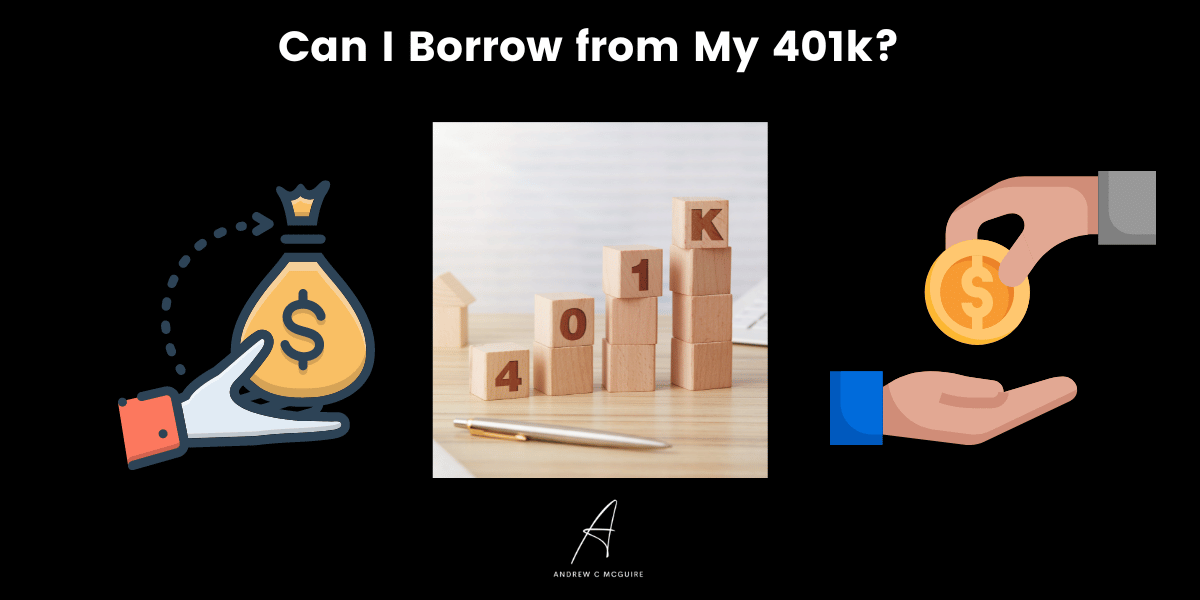
Borrowing from a 401k can be an attractive option for investors looking to access their retirement funds. Before making the decision to borrow, it is vital to understand the rules and regulations that govern borrowing from a 401k.
The IRS allows individuals to take out loans from their 401ks as long as they meet certain criteria. To qualify, you must have been employed with your current employer for a minimum of 12 months and have contributed at least $1,000 in salary deferrals during that time period. Additionally, you are only allowed one loan at any given time and cannot exceed 50% of your vested balance or $50,000 (whichever is less). You will also need to pay back the loan within five years with interest rates set by your plan administrator.
One advantage of taking out a personal loan from your 401k is that you don’t need good credit or collateral since it’s essentially a secured loan backed by your own money in the account. Furthermore, if you leave or lose your job while repaying the loan balance, you may be able to continue paying off the debt without penalty through direct payroll deductions if certain conditions are met, such as working for another company that offers similar plans within 60 days after leaving employment.
There are some drawbacks associated with borrowing from a 401k, such as potential tax penalties if not paid back on time and lost investment opportunities due to missing out on compound growth over time which could significantly reduce overall returns in the long run. Additionally, depending on how much money has already been withdrawn prior to taking out this new loan amount, future withdrawals taken before age 59 ½ may incur additional taxes and/or penalties beyond what was initially expected when first withdrawing funds early under normal circumstances. Making a hardship withdrawal gets taxed like ordinary income.
How Do I Borrow From My 401k?
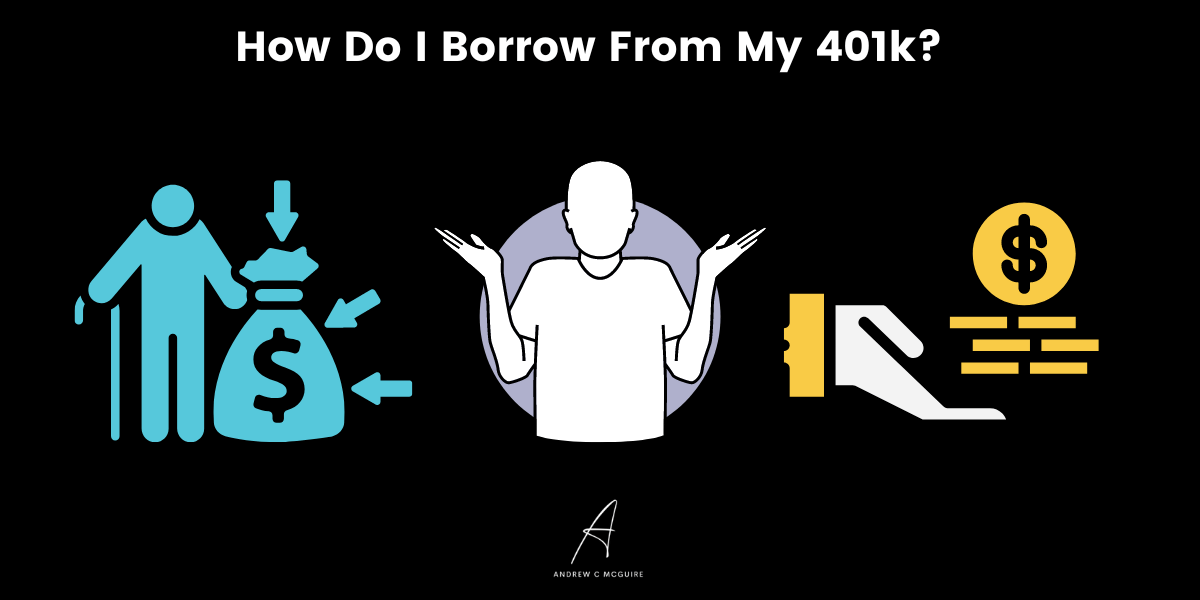
Borrowing from your 401k can be a great way to get access to funds when you need them. However, it is important to understand the rules and regulations for borrowing from your 401k plan before taking out a loan.
When requesting a loan from your 401k plan, there are critical steps that must be taken in order to ensure that the process goes smoothly. First, you will need to contact your employer or the financial institution managing your vested account balance in order to request a loan application form. This form will include information such as how much money you would like to borrow and what type of repayment schedule you prefer. Once this form has been completed and submitted, it will then be reviewed by the appropriate personnel at either your employer or financial institution, who will make sure all requirements have been met before approving the loan request.
In addition to submitting an application form, borrowers may also need to provide additional documentation, such as proof of income or other financial documents, in order for their loan request to be approved. It is important that these documents are accurate and up-to-date so that they can properly assess whether or not you are fit for a loan from your 401k plan.
Once approved, borrowers should familiarize themselves with the repayment terms associated with their loans, including interest rates and payment schedules, which vary depending on each individual’s circumstances. Borrowers should also keep in mind that any unpaid balances remaining after five years may become subject to taxes plus penalties if they fail to meet loan repayment deadlines set forth by their respective plan administrators.
Overall, understanding all aspects of borrowing from one's 401k is essential prior to making any decisions regarding taking out loans against a retirement savings account since failing to do so could result in significant consequences down the line, both financially and legally speaking.
Tax Implications of Borrowing From Your 401K
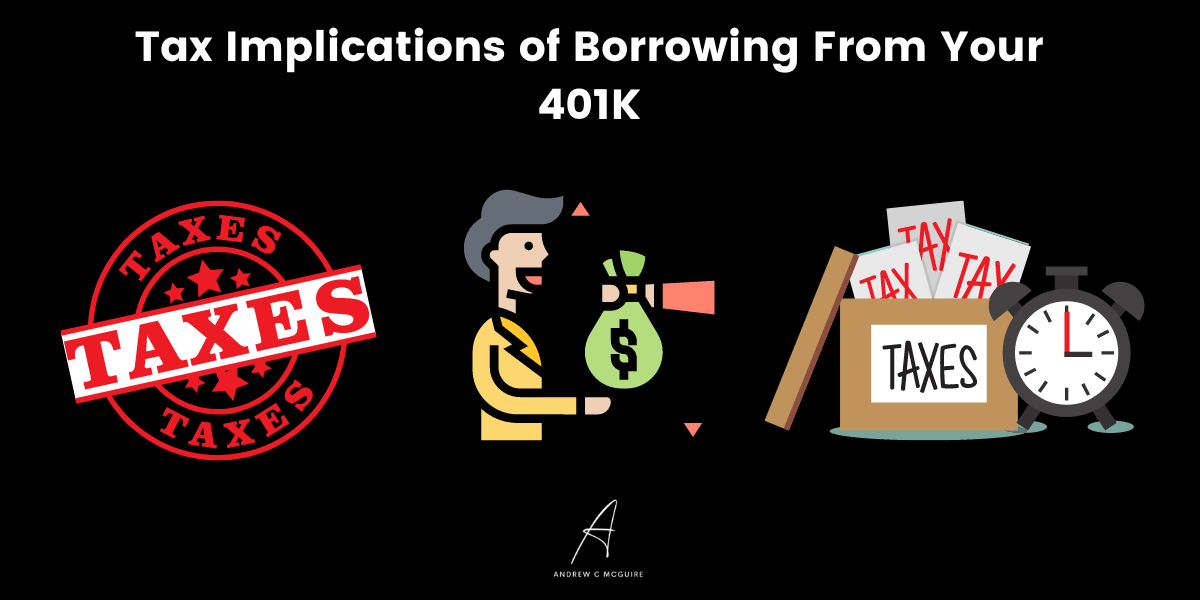
When it comes to borrowing from your 401k, there are tax implications that you should be aware of. Taking out a loan from your individual retirement account can have serious consequences for your financial future if not done properly.
When taking out a loan from your 401k, the amount borrowed is not taxed as income (no income taxes). However, when you pay interest on the loan, the interest payments will be considered taxable income and must be reported when filing taxes each year. Additionally, if you fail to repay the loan within five years or become separated from service with an employer sponsoring the plan before repayment is complete, then any outstanding balance will be treated as an early withdrawal and subject to ordinary income tax plus a 10% penalty tax.
It is important to note that these penalties apply even if you use withdrawn funds for approved expenses such as college tuition costs or medical bills; they still count towards taxable income unless taken out through loans via 401ks plans, which do not incur this penalty.
Tips For Making Smart Decisions About Borrowing From Your Retirement Account
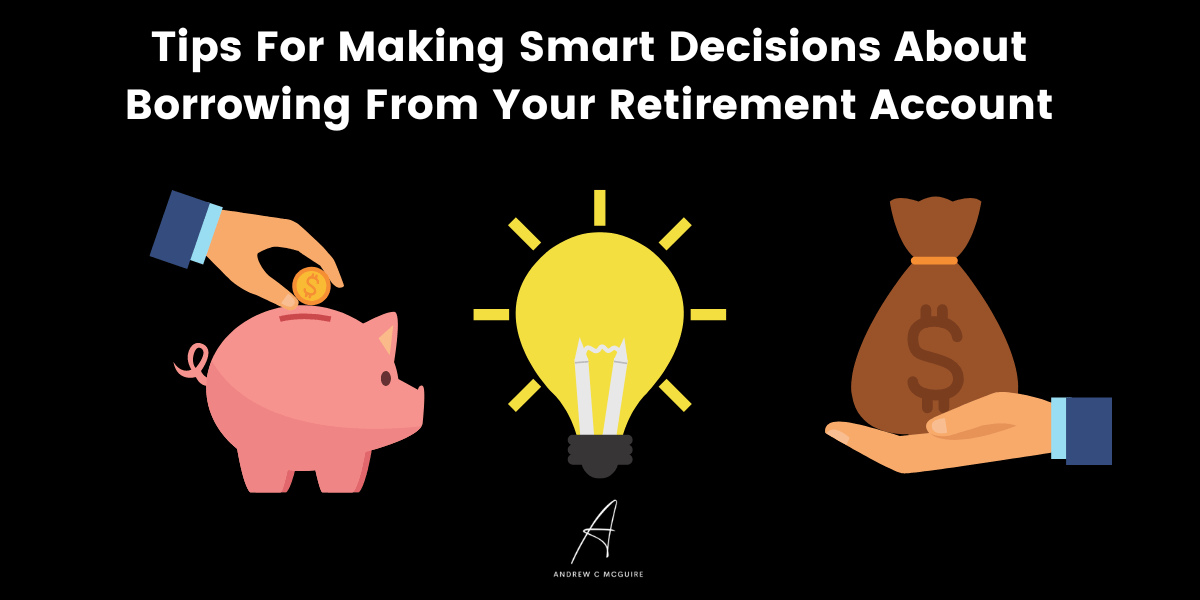
When considering taking out a loan from your retirement account, it is important to understand the potential risks and rewards. Before making any decisions, you should weigh all of your options carefully and consider the long-term implications of borrowing from your 401k.
It is key to be aware that if you are unable to repay the loan on time, there may be tax consequences as well as withdrawal penalties for the early distribution of funds. Additionally, when taking out a loan from your retirement account, you will need to provide documentation such as proof of income or other financial information in order to qualify for the 401 k loan. You should also research repayment terms and the specific interest rate associated with loans taken out from 401ks so that you can make an informed decision about whether this type of borrowing is right for you.
To minimize risk when taking out a loan from your retirement account, it is recommended that borrowers set up automatic payments or establish reminders, so they do not miss any payments due on their loans. Additionally, borrowers should strive to pay off their loans quickly in order to avoid accruing more interest than necessary over time. It’s also wise for borrowers to create an emergency fund outside of their retirement accounts in case they experience unexpected expenses while repaying their loans.
Conclusion
Borrowing from your 401k can be a great way to access funds in an emergency or for other important financial needs. However, it is important to understand the tax implications and consider all of your options before making any decisions. Be sure to research thoroughly and consult with a qualified financial advisor if you have questions about whether this is the right choice for you. Remember that when it comes to retirement planning, taking out loans from your 401k should only be done as a last resort since doing so could significantly reduce the amount of money available for retirement.
